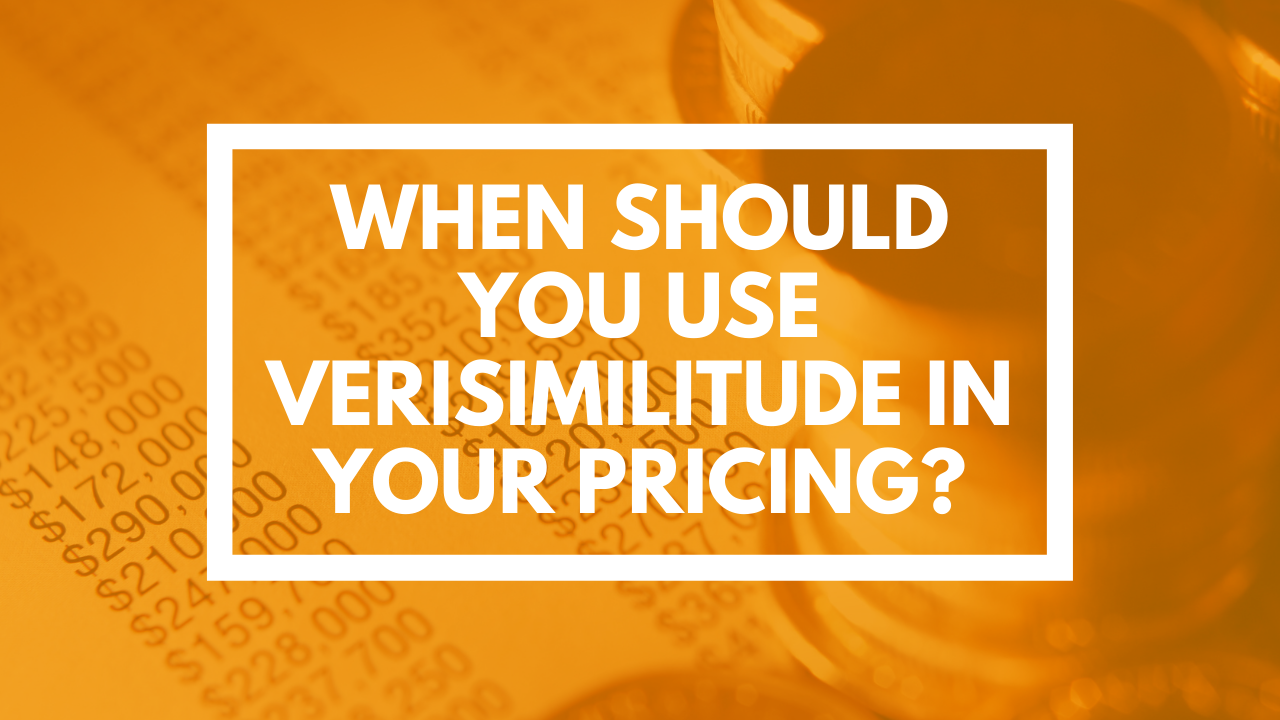
When Should You Use Verisimilitude in Your Pricing?
Dec 26, 2016How verisimilitude – the appearance of truth – can improve your pricing
Today I’d like you to think about why you should use verisimilitude – the appearance of truth – in your pricing. To help, I’ll first need to tell you a little about the research behind it, and then I’ll explain how you can apply what you’ve learned to reap the rewards in your own business.
Rounded prices rely on emotions, non-rounded on cognition
In 2015, Wadhwa and Zhang – two Assistant Professors of Marketing – wrote: "Because rounded numbers are more fluently processed, rounded prices encourage reliance on feelings. In contrast, because non-rounded numbers are disfluently processed, non-rounded prices encourage reliance on cognition." Theirs was the first research that examined the impact of rounded prices on people’s decision to buy a product – and more specifically that was based on whether the decision was driven by feelings or by cognition. But what on earth does that mean in lay terms?
So what does that mean for accounting professionals?
Essentially, their findings mean that whether we should offer a rounded price or not depends on whether people will base their decision to buy whatever it is we’re selling on emotion, or logic.
To illustrate, here’s a concrete example. First, imagine the number £19.86. It’s what’s known as a more precise number. And what the research shows is that a precise number is better if we're purchasing things that are logical. In contrast, £19 would be better if we were purchasing something based on emotions. A good example might be food. When we buy we're thinking about our stomachs and so we tend to buy based on emotion. (That’s why – if you think for a moment about the last good-quality restaurant you visited – they probably used rounded numbers in their pricing.)
The more precise the price, the less people are likely to argue
Another piece of research, this time from Janiszewski and Uy in 2008, found that the more precise the number is – remember, we're talking about logical purchases here – the less people are likely to argue about it, or to push back.
So, to bring it back to how this can benefit us in our professional lives, the first thing we need to identify is: Are we selling an emotional service or a logical one? The bookkeeping and accounting professions are definitely logical, which means we can tap into the findings of this research, and use precise numbers (or, as I said at the very beginning of this post – verisimilitude) to increase how effectively we price.
So, remember: please don’t use rounded numbers when you're pricing your services. You'll find you get a better price if you make sure it has that appearance of truth.
To find out more about using verisimilitude in your pricing, you can watch my short video here.
If you found this valuable and would like to learn more about value pricing, I run a free live online training session every month with a topic chosen by you. Attend live and you can ask me any questions you have. Click here to register and I will send you an invitation to the next session.
Wishing you every success on your pricing journey
Mark Wickersham
Chartered Accountant, Public Speaker and Author of Amazon No.1 Best Seller “Effective Pricing for Accountants”

